LINK!!!!
Poor people are not a liability, says Mugabe
By Chansa Kabwela, Kingsley Kaswende and George Chellah in Hara
Thursday June 21, 2007 [04:00]
ZIMBABWEAN President Robert Mugabe has said poor people are not a liability to society.
And Reserve Bank of Zimbabwe (RBZ) governor Dr Gideon Gono has said the central bank will spend Z$32 billion (US $128 million; US $1=Z$250) to support microfinance and money lending institutions in the country.
Opening a regional meeting on measuring performance of micro-finance institutions at Harare 's Rainbow Towers Hotel yesterday, President Mugabe said a paradigm shift was needed to recognise that poor people were not a liability but an untapped resource and potential contributors to economic development.
President Mugabe said there was a misconception in most developing countries of regarding all poor clients as risky and less profitable.
"Since governments and donors have only limited capacity to meet this supply shortfall, we need to involve micro-finance institutions that can mobilise resources locally. However, we need to be clear that micro-finance is not charity. It is instead a way to extend basic rights, affordable credit and services to low income households," he said.
President Mugabe said there was need to note the intricate relationship between poverty and gender especially with particular reference to women.
He said women and children in most cases bear the brunt of poverty as they were in some societies and cultures disadvantaged both educationally and traditionally, with their economic capabilities despised.
"Micro-finance therefore provides improved and more realistic opportunities to create jobs for women and their families, a situation that is favoured by many since women generally prove to be more honest and focused borrowers. For us to meet the target set under the third Millennium Development Goal, that is of promoting gender and empowering women, more resources should be channeled towards improving the role of micro-finance institutions," President Mugabe said.
"While micro-finance is expanding, key challenges emerge and these include the need for product diversification, capacity building and lesser donor dependency. This makes it necessary to transform and integrate the micro-finance sector into the formal financial system. In Africa, for example, micro-finance institutions are striving to increase outreach and sustainability and have adopted micro-finance approaches such as savings and credit unions, cooperatives and even non-governmental organisations that provide credit. However, given their lack of access to resources and the challenges of macroeconomic conditions, many micro-finance institutions have remained dependent on external assistance."
President Mugabe said there was need for all people to fight poverty in Africa.
He explained that in many countries, including Zimbabwe, micro-finance had proved its value as a weapon against poverty and hunger.
President Mugabe said ordinary but hardworking people with access to micro-finance could build up assets and protect themselves against unexpected setbacks and losses through savings and small loans.
"They can also move beyond mere day-to-day survival and attain the capacity to better plan for the future and invest in better housing, improved health and better education, hence reducing their vulnerability to the vicious challenge of poverty. It is the duty of governments and that of all stakeholders in the development process to make micro-credit a tool to reach the 900 million people who make up the world's poor," he said.
President Mugabe said the current economic challenges had given rise to the emergence and subsequent growth of many micro-finance institutions which had endeavoured to fill the gap created by deficiencies in the traditional banking system.
President Mugabe said Zimbabwe takes the micro-finance sector seriously and had since raised its profile by placing it under the ambit of the central government.
And Dr Gono said the RBZ had earlier released Z$16 billion (US $56 million) which has all been taken up and that it was adding another Z$16 billion.
"So far the RBZ has disbursed Z$7.6 billion or 46 per cent of the Z$16 billion disbursed to date. Many of the beneficiaries were in the agriculture sector such as livestock, poultry and commodity broking. Applications were also received from the mining and manufacturing sectors, which included food processing and brick moulding," he said.
"The Z$16 billion has all been taken up and I would like to announce that we are releasing another Z$16 billion for the same purpose. This is necessitated by your (President Mugabe's) visit to some of them and your comments to them."
Dr Gono said the central bank had so far registered 257 microfinance and money lending institutions since it embarked on regulatory reforms for the industry in 2004."
He said before then, the industry was prone to indiscipline and it became imperative for the RBZ to take control.
Dr Gono said SMEs contribute 50 per cent to the Zimbabwe's GDP and support 80 per cent of the population in a country of 13 million people.
He said RBZ would continue with appropriate lending to the microfinance sector in its monetary interventions, as the sector was a bridge to the gap that banks have left in the economy in its current situation.
Harare Metropolitan Province governor David Karimanzira said micro-finance has been changing people's lives since the beginning of trade.
Karimanzira said people were able to support their families after accessing small loans from micro-finance institutions thereby helping to reduce poverty and contributing to Zimbabwe's economic development.
What exactly is the way forward in Zimbabwe?? Please Zimbos lets discuss! hosted by zimfinalpush.
Chat about what's on your mind. More about public chats.
|
MP3 music download website, eMusic

| Click here to unsubscribe | Privacy Policy | Terms of Use |
© 2006 eMusic.com, Inc. All rights reserved. iPod® is a registered trademark of Apple Computer, Inc. Apple is not a partner or sponsor of eMusic.com, Inc. |
|

Powered byIP2Location.com
NB: THIS IS NOT THE HOME PAGE!!!1
1
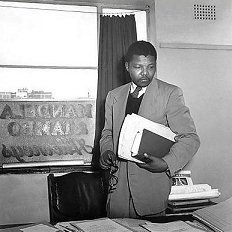
Mandela as young attorney in his office at Tambo & Mandela, 1952 to 1956.
2
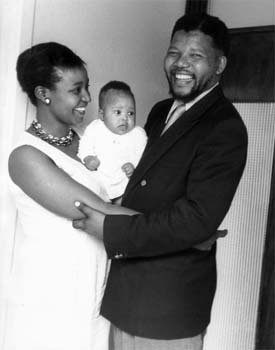
Mandela and his second wife, Winnie Madikizela-Mandela, and their daughter Zinzi. Married 1958 to 1996.
3
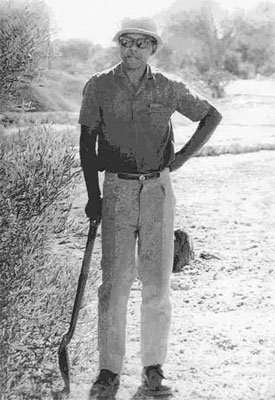
Mandela working in the prison garden..............
4
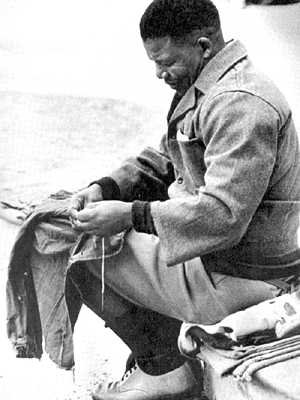
.....................and doing his sewing during his 18 years on Robben Island. 1964 to 1982
5
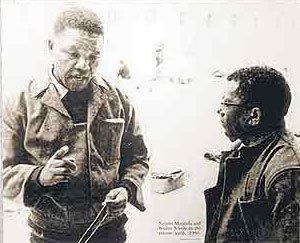
Mandela and Walter Sisulu on Robben Island, late 1964
6
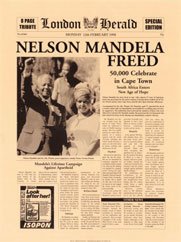
Nelson Mandela released on 11 February 1990 after spending 27 years in prison.
7
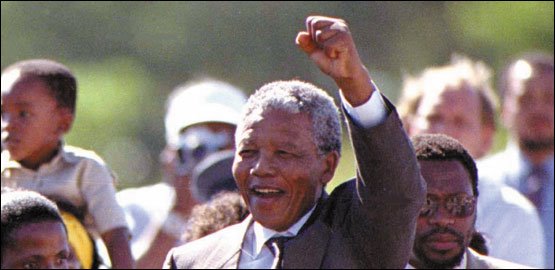
..................................same as no 6.................
8
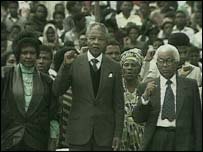
Mandela being greeted by Winnie and Walter Sisulu after his release from prison in 1990.
9
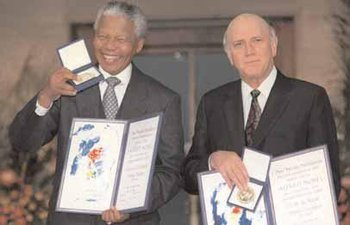
Mandela and FW de Klerk receiving the Nobel Peace Prize jointly in 1993.
10
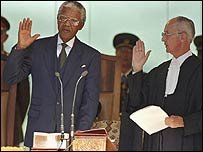
Mandela being sworn in as president on 10 May 1994.
11
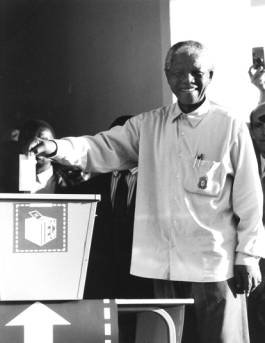
Mandela casting his vote in the first democratic elections in 1994
12
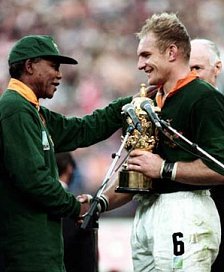
Mandela congratulating Francois Pienaar at the 1995 Rugby World Cup.
13
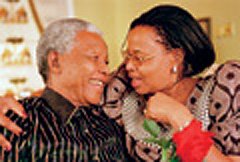
Mandela and his wife, Graca Machel, married on his 80th birthday in 1998.
14
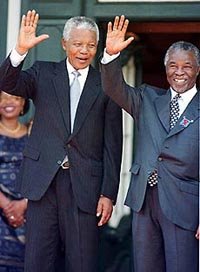
Mandela with Thabo Mbeki who succeeded him as president in 1999. Photo taken at Tuynhuis after Mandela's last address to parliament on 5 February 1999.
About Me

- The Radical Mindset!
- I look for "The truth, the whole truth, and nothing but the truth" at all times.
Blog Archive
-
▼
2007
(22)
-
▼
June
(12)
- ITS NOT THE JOB OF THE MDC TO "BAIL OUT" ZANU-PF!!!
- THE MDC MAY BOYCOTT NEXT YEAR'S POLLS!
- Dear Mrs Sekai Holland,
- FINAL MESSAGE TO ZIMBABWEANS AND ALL FRIENDS!!
- "ZIMFINALPUSH" 10TH MASTER-ARCHIVE!!!
- "ZIMFINALPUSH" 9Th MASTER-ARCHIVE!!!
- "ZIMFINALPUSH" 8Th MASTER-ARCHIVE!!!
- "ZIMFINALPUSH" 7TH MASTER-ARCHIVE!!!
- "ZIMFINALPUSH" 6TH MASTER-ARCHIVE!!!
- MBEKI MUST STOP THIS ABUSE AND DEPORTATION OF ZIM ...
- Poor people are not a liability, says Mugabe!!!
- Mugabe’s gravitas in talks about talks!!!!
-
▼
June
(12)
Thursday, 21 June 2007
Subscribe to:
Post Comments (Atom)






No comments:
Post a Comment